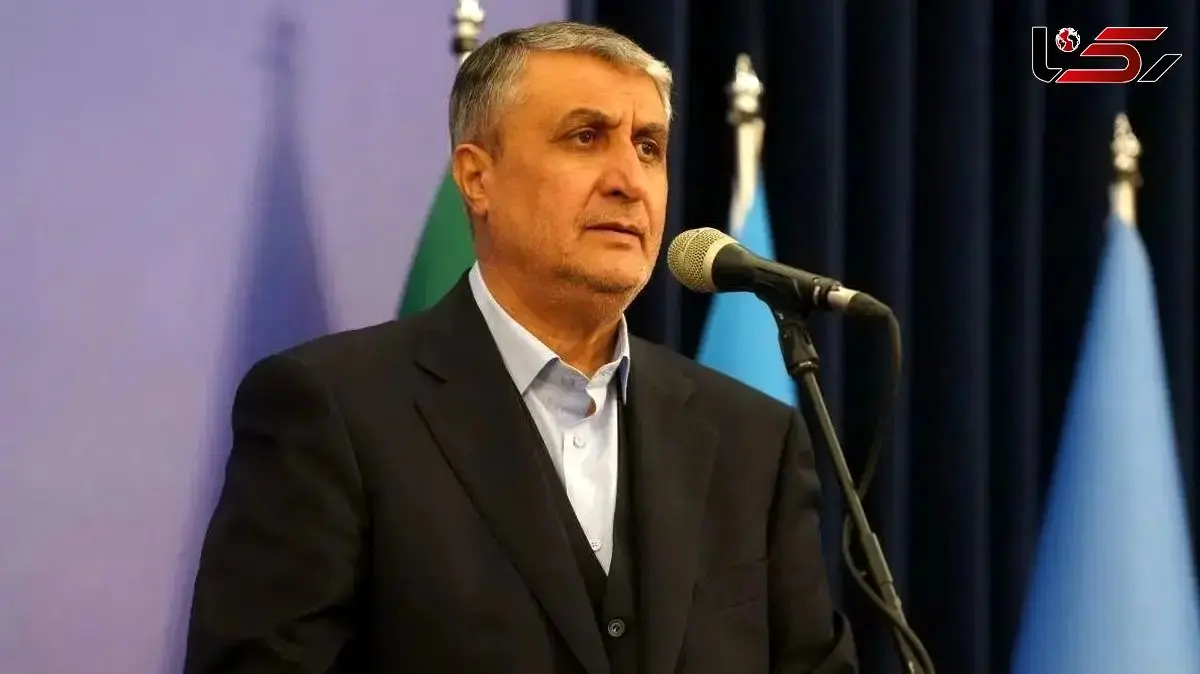Head of the Atomic Energy Organization of Iran: The Agency Lost Its Credibility After the Attack on Iran
Rokna Political Desk: The head of the Atomic Energy Organization of Iran emphasized the need to develop a new modality aligned with wartime conditions, stating that as long as the Agency refuses to accept this reality, pressures rooted in political maneuvering will not be effective, and Iran’s commitments will remain within the framework of safeguards.

Mohammad Eslami, head of the Atomic Energy Organization of Iran, speaking on a panel at the international conference “International Law Under Assault: Aggression and Defense,” moderated by Saeed Khatibzadeh, Deputy Foreign Minister, stated: According to the Agency itself, Iran fulfilled all of its commitments under the JCPOA, but it was the other parties who failed to meet their obligations.
According to Rokna, he continued: Under the JCPOA, the Agency was required to submit reports on Iran’s peaceful nuclear activities to the Board of Governors every three months and to the Security Council every six months. However, with the U.S. withdrawal from the JCPOA and the subsequent developments, tensions re-emerged.
The head of the Atomic Energy Organization stressed: This demonstrated that negotiation and agreement had no effect in removing accusations against Iran. Another important point is that none of the facilities targeted in attacks—such as the Israeli attacks on Iraq, Syria, Ukraine, or Russia—were under Agency safeguards. But in Iran, facilities under the Agency’s supervision were attacked; it was the first time in history such an event had occurred. Inspectors were scheduled to visit the facilities on the morning of the same day Iran was attacked.
Rejecting accusations regarding Iran’s nuclear program, Eslami said in another part of his remarks regarding the U.S. and Israeli attack on Iran and its nuclear facilities: Unfortunately, the Board of Governors and the UN Security Council refused to condemn these attacks. The Israeli attack on Iran occurred while Agency inspectors were present in Iran and were scheduled to visit the facilities at 8:30 a.m. that same day.
Referring to the current situation following the attack on Iran’s nuclear facilities by the U.S. and the Zionist regime, he emphasized: The Agency must accept that we are in a new situation and that a modality consistent with wartime conditions must be developed. Until this happens, our commitments remain within the framework of safeguards and the Statute, and political pressures will not succeed as long as such a modality is not established.
The head of the Atomic Energy Organization of Iran further stated: Unfortunately, some countries misuse the Agency’s cohesive capacity. At the recent General Conference in Vienna, we proposed that attacks on nuclear facilities under Agency safeguards be prohibited, but the Americans strongly opposed the proposal and prevented it from being presented. What happened to Iran could happen to other countries as well. Information held by the Agency is confidential and must not be used as bait.
Referring to the continuous threats against Iran, he said: Perhaps more than 16 research centers in Europe and the U.S. constantly monitor and routinely fabricate issues to provoke action against Iran’s nuclear program. If everything has supposedly been destroyed, then why all these threats? It is clear that the goal is not a nuclear bomb, but rather the destruction of capacities that contribute to our country’s progress.
The first facility Israel bombed was the plate fuel production plant for the Tehran reactor
Eslami added: The first facilities Israel targeted were the plate fuel production plant for the Tehran reactor—a research reactor dedicated to producing radiopharmaceuticals.
Referring to Iran’s protective measures, he said: Because we faced an active threat, we implemented extensive precautions to protect experts, sites, and materials that could cause environmental contamination or affect the population.
The Agency’s credibility was lost with the attack on Iran
The head of the Atomic Energy Organization of Iran stated: The more important point is that this information was in the Agency’s possession. When a laboratory equipped in cooperation with the Agency is struck, and the very room fitted jointly is targeted, who other than someone misusing the Agency’s information could carry out such an attack? These events have destroyed the credibility of an international organization whose mission is the fair promotion of nuclear technology for all nations.
In response to a question regarding whether the safeguards system has become stronger or has been undermined following the attacks on Iran, he said: No country has had an experience comparable to ours. In terms of quantity and the use of resources, approximately 80 percent of the International Atomic Energy Agency’s global monitoring efforts are spent on Iran.
He added: If we look at the overall inspections, Iran’s nuclear facilities constitute only three percent of the world’s total, yet the volume of inspections relative to overall Agency inspections accounts for about 25 percent. Under the safeguards system, 80 percent of safeguards costs and monitoring concern Iran.
Eslami emphasized: What we have experienced has not yet occurred for other countries. If the law of the jungle and double standards are allowed to prevail, such incidents could happen to any country at any time through the misuse of influence within an international organization.
Send Comments